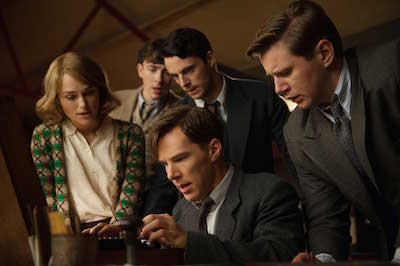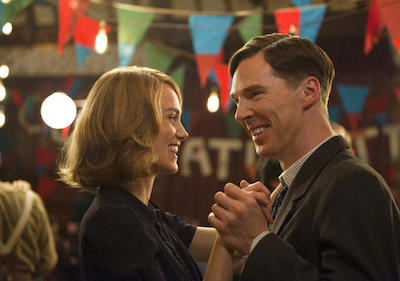
If you walk down the street and ask someone “Who is Alan Turing?” they probably would give you a blank stare or a puzzled expression. After watching “The Imitation Game,” viewers everywhere will know about Alan Turing and his life-changing position in helping to end World War II. “The Imitation Game” is an intense film set in the 1940s that depicts the turmoil of the time and within Turing’s life while still having all the necessary parts of a film, including humor, romance and high stakes.
Alan Turing (Benedict Cumberbatch) is part of an elite group searching for the key to Enigma, the coding system the Germans utilized during World War II. Turing is a genius but is socially awkward as he cannot comprehend jokes or sarcasm, which often causes difficulties between him and the other workers.
The humor in “The Imitation Game” is often very subtle and can be found in Turing’s actions or in snarky comments from his team that completely pass over his head.
“The Imitation Game” has three distinct plot lines, which give a more complete idea of Turing’s life. The main plot line is Turing working on Enigma and creating “Christopher,” a machine that should solve Enigma and become a “universal machine.” The name “Christopher” has meaning to the audience because of the second plot line that focuses on his intimate friendship with his only friend Christopher Morcom (Jack Bannon) during high school. Everything gets tied together in the final plot line in which Turing is exposed, not as a Soviet spy, but as a gay man, which was a crime in the United Kingdom until 1967.
A British film would not be complete without Keira Knightley. Knightley plays Joan Clarke, who outdoes many of the men on the Enigma team and is Turing’s closest confidant. Knightley is practically the only female character, but she is strong and refreshing. In order to keep Clarke on the Enigma team, Turing often goes above and beyond by lying to her parents about her “secretarial job” and even proposing to her, so she still fits stereotypical women’s roles during the time period.

Not only is the film set in an incredibly tenuous time period, but Turing’s sexual orientation also causes himself to be a target. Throughout the movie, the idea of his feelings toward Morcom build, and his homosexuality becomes a greater topic as the storyline escalates. The film itself is not about homophobia, but this definitely adds a more contemporary importance to the film.
The costumes seem very well done and enhance the setting of the time period. Cumberbatch’s performance was amazing, as the audience both loved him for his ideas but felt removed from him with his awkwardness. Even though the film is about a dark time in history, it has plenty of happy and adorable moments. After Cumberbatch understands a clue of how to crack Enigma, the urge to stand up and cheer is undeniable.
“The Imitation Game” is up for eight Oscar nominations. Best Picture, Actor in Leading Role and Actress in Supporting Role are just a few of the possible awards that we can expect from this film.
“The Imitation Game”
1 hour, 54 minutes
Rated PG-13 for sexual references and mature thematic material
Directed by Morten Tyldum
With Benedict Cumberbatch, Keira Knightley and Matthew Goode

